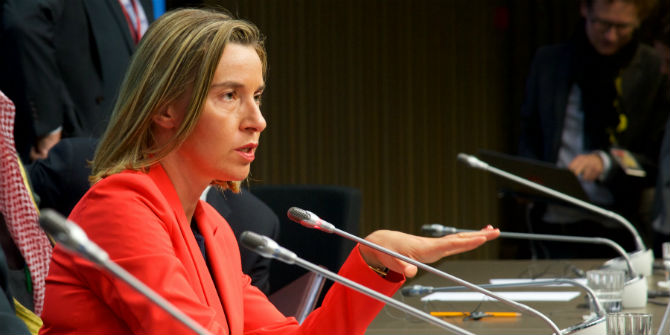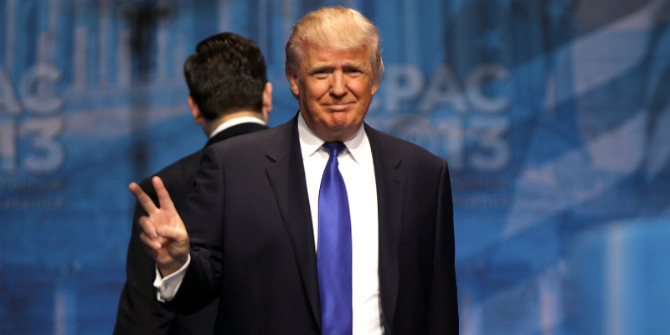Is the grass greener on the other side, ask John Erik Fossum and Joachim Vigrestad (University of Oslo)? In this blog, the present the Norwegians’ assessments of Brexit and are that it may expose the special arrangements that EFTA states have to the EU.
The European Union has over time developed quite a comprehensive system of affiliations with neighbouring states. Both actors in the UK and in the EU have discussed these affiliations as possible templates for how the UK and the EU could organize their relations post-Brexit. At the same time, it is important to keep in mind that the UK’s exit from the EU might set a new benchmark for the EU’s existing affiliations with neighbouring states. In particular, other non-members may see the UK’s post-Brexit affiliation with the EU as a template, and as a basis for renegotiating or simply altering their relations with the EU. That is what we have considered in our recent article titled ‘Is the Grass Greener on the Other Side? Norwegians’ Assessments of Brexit’ published in Politics and Governance.

In the article, we shed light on the extent to which Brexit has affected Norwegians’ perceptions of their current relationship with the EU and the considerations that central Norwegian political and societal actors have brought up in relation to Brexit. As we demonstrate below, the Norwegian debate provides important insights into the robustness of the EU’s present arrangements with non-members, what is often referred to as the pattern of EU external differentiation.
In our article, we chose to pay special attention to Norway for a number of reasons. For one, Norway’s EU affiliation, through the European Economic Area Agreement (EEA) and a host of other agreements, places Norway among the EU’s most closely affiliated non-members. Norway is one among few affiliated non-members that qualify for EU membership, which matters for comparability, given that the UK through its well over four decades of EU membership is thoroughly Europeanized. Furthermore, the EU’s aim was initially to establish an agreement with the UK that was as similar to Norway’s EEA affiliation as possible, not the least because the EEA Agreement has formed the template for the EU’s relations with its most closely associated non-members.
Although the EU sought to establish an EEA type of agreement with the UK, the UK has rejected the type of single market participation and membership in the EU’s Customs Union that the EEA Agreement implies. There is no doubt that the EU–UK Trade and Cooperation Agreement offers a far narrower and looser type of affiliation (if it ends up being put into effect). For sovereigntists across Europe, Brexit and the mantra of ‘taking back control’ offers the prospect of escaping from the shackles of the EU. At the same time, the UK’s complicated exit process shows how profoundly EU-member states have been incorporated in the EU-led European political and economic order, not only vertically but also horizontally through tight bonds and interdependencies between states and societies across Europe. In other words, Brexit could equally well discourage affiliated countries from seeking to change their EU affiliation as to serve as a catalyst for disintegration.
Our analytical framework draws on Catherine De Vries’ benchmark theory, which she applied to Brexit. De Vries posits that people compare the costs and benefits of their current EU affiliation with alternative statuses (of non-membership). In applying the benchmark theory to Norway, we identify the actors that refer to Brexit as a template for Norway’s future EU affiliation and the aspects – issues and concerns – they base their evaluations on.
Our analysis showed that the assumptions we derived from the benchmark theory were mostly confirmed. The Norwegian government and the major political parties saw Brexit as a challenge to a depoliticized status quo that they seek to protect. That included the Norwegian Parliament rejecting proposals for studies to explore the effects of less binding alternative affiliations than the EEA Agreement. The preference for the status quo is also reflected in opinion polls that indicate slightly increasing, stable support for the EEA Agreement. Those political parties and organizations that sought to change the status quo did not agree on what they wanted to change: renegotiate the EEA Agreement; renegotiate Schengen; or sign a less comprehensive trade agreement. Overall, our findings suggest little appetite for a new EU membership debate. Some political entrepreneurs stressed sovereignty but generally diverged from the UK’s preferred socio-economic model. Others expressed concern about the EU’s neoliberal turn and the problem of social dumping associated with labour mobility. However, whereas this stance appears to dovetail with the Brexiteers’ onus on regulating immigration, it was not the immigration-critical, right-wing populist Progress Party that was most eager to change the status quo, but parties on the far left. The change-oriented Norwegian political entrepreneurs endorsed a socio-economic model that was much further to the left than are the UK Conservatives (even those in favour of state aid). An important reason for the lack of explicit reference to the UK as a benchmark on the socio-economic dimension is precisely this significant discrepancy in understandings of solidarity and economic justice.
With regard to the implications that we can discern from this analysis for the EU’s relations with affiliated non-members, it is apparent that Brexit thus far works more as a deterrent, than as an inducement for change. Whether this is mainly due to the tangled Brexit process or whether it is due to the fact that, at least for Norway, Brexit left little scope for linking sovereignty to the socio-economic problems that actors associate with the present EU affiliation requires further investigation. It is noteworthy that formerly EU-supportive social democrats largely share such concerns. In the Brexit negotiations, concerns with social justice and environmental standards figured strongly in the EU’s demands to the UK, but the EU does not appear to gain much traction from this in terms of Norwegians’ lacklustre support for EU membership.
Our analysis shows that we cannot assess Brexit as a benchmark without paying attention to the sheer size and magnitude of the EU–Norway power asymmetry, which actors clearly recognize. That affects the actors’ calculations in that risk and uncertainty figure more prominently. That brings up the question as to whether the EU should be more accommodating in its relations with non-members. In that context, from the EU’s perspective, the distinction between those that qualify for EU membership and those that do not probably matters. The EU has proven exceptionally inclusive with regard to non-members that qualify for EU-membership (the EFTA states) – provided they abide by EU laws and regulations. But there are limits. If the EU is very accommodating to states that have the option to seek membership but refuse to do so, the EU risks lowering the bar for exit or pleas to renegotiate the terms of membership from its own member states. In that sense, Brexit may expose the special arrangements that EFTA states have to the EU more than before.
These considerations must be viewed in light of the fact that the EU as a non-state entity is particularly disposed to import centrifugal pressures from the manner in which it structures its affiliations with non-members.
This post represents the views of the author(s) and not those of the Brexit blog, nor of the LSE.







Very interesting read. Thanks for sharing.
three quick points.
1. As an aside to the core thrust of the article….as an Irish person who lived in Norway for the best part of 10 years in the 1990s I think it is a shame Norway isn’t a full member state of the EU. I respect the Norwegian electorate in their decision not to join, but, I think Norway would contribute so much to the EU in many areas.
2. I recognise De Vries’ three findings in Ireland…(a) happy with the status quo (b) brexit has increased support in Ireland for the EU membership i.e. 84% in favour (REDC Poll 2020) (c) populist political entrepreneurs did try and push an “Irexit” but failed spectacularly in 2020 general elections with less than 0.03% of first preference votes (Ireland has proportiional representation)
3. Slightly related but if anyone is interested in a deeper dive into the various factors behind the brexit vote in 2016, the impact of the UK border in Northern Ireland and internal UK Union dynamics that impacted the brexit vote, this missive from Fintan O’Toole is well worth a watch. https://www.youtube.com/watch?v=JvDAW5SjdaE&ab_channel=WorldAffairs I think we are witnessing a collapse of the UK Union over the next few years because of brexit and Fintan joins the dots between the Good Friday Agreement, the 2011 UK census, the brexit vote and what is happening now quite well.